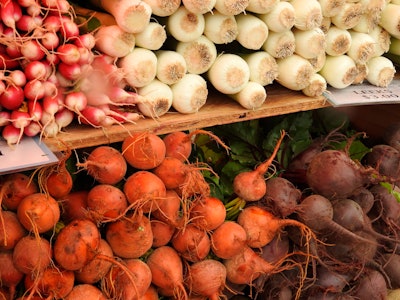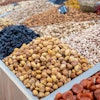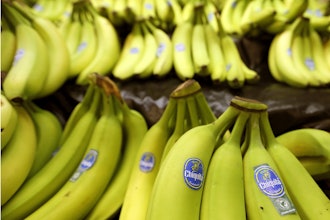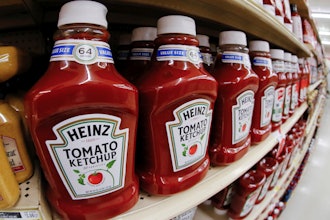
Animal waste tainting fresh produce is one of the major causes of food-borne ailments. So farmers markets and pick-your-own growers who fear fecal contamination are increasingly guarded about tolerating pets near their edibles. Home gardeners should be cautious, too.
Many of the pathogens affecting food safety come from the intestinal systems of animals, said Diane Wright Hirsch, senior education educator with the University of Connecticut. "Whether human, dog, cat, cow or deer — all animals can be the source of Salmonella, E. coli, parasites and other disease-causing microbes associated with food-borne illness," Hirsch said.
E. coli outbreaks have been traced to meat, poultry and fresh produce, particularly lettuce. Salmonella has been detected in eggs, poultry, pork, sprouts, cucumbers and cantaloupe, while Listeria monocytogenes can be found in all types of food, including processed meats, cheese, apples and frozen vegetables, according to a University of Connecticut fact sheet.
All are serious ailments, particularly for the young and the elderly. Contamination can be spread via irrigation water, animals, unsanitary workers, harvest containers and dirty equipment. It's vital to keep animal and poultry feces out of residential and community gardens and well away from farmers markets and roadside food stands.
"I have seen a dog pee on the corner of a farmers market table, and another place his head near the produce (where has that mouth been?)," Hirsch said in an email. "Farmers are working hard to produce safe fruits and vegetables — why let someone's dog ruin it all with a lick, a squat or a lift of the leg?" she said.
Many large farmers markets have banned dogs from their craft, food and produce displays, citing breakage, safety and sanitary concerns. The Olney (Maryland) Farmers and Artists Market struggled with the issue for years before deciding to exclude dogs, said Janet Terry, Olney's president. "It would be horrifying to think what would happen if dog feces were found on our site."






















